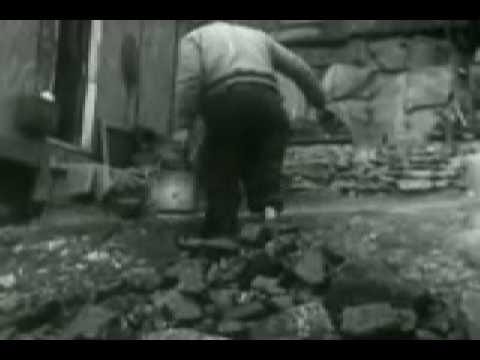Every Tom Waits Song is an email newsletter covering just that, in alphabetical order. Find more info here and sign up to get it sent straight to your inbox:
In interviews promoting Mule Variations, Waits cited Leadbelly. A lot. At least three songs on the album he said had Leadbelly origins. For instance, about the bluesy “Lowside of the Road,” he said this:
Leadbelly was involved in a skirmish after a dance one night on a dirt road, late. Someone pulled out a knife, someone got stabbed, and he went to jail for it. He was rolling over to the low side of the road. I seem to identify with that. I think we all know where the low side of the road is.
More surprisingly, when asked about the sentimental ballad “Picture in a Frame,” Leadbelly got another nod:
Sometimes I listen to Blind Lemon Jefferson or Leadbelly, and you'll just hear a line or a passing phrase. The way they phrase something sounds like the beginning of another whole thing, and they just use it as a passing thought, kind of a transitory moment in the song. But it sounds to me like it could have opened up into another whole thing. I heard that title, "Picture in a Frame," in another song. I don't even remember what the song was now. And I thought, that's a good title for a song. So I made it about Kathleen and me.
And, finally, today’s song, “Cold Water.” Here’s how that one tied into Leadbelly:
I marvel at Leadbelly, who just seems to be a fountain of music. When he started working with Mose Ash, he told Huddie he wanted to record anything---nursery rhymes you remember, whatever. He said, get up and tapdance, and we'll put a microphone on the floor, and we'll put that on the record. And play a squeezebox, or tell a story about your grandmother. They were like concept albums. They're kind of like photo albums, with pictures of you when you're a kid. I love the way the songs unfolded, the way he would go from telling a story about the song right into the song, and there wasn't even a bump in the road when he started singing. He could have just talked for another three minutes, and that would have been fine, too. A lot of the litany in his songs were---well, he'd have a lot of repeats. 'Woke up this morning with cold water, woke up this morning with cold water. . .' It's a form. They're like jump-rope songs, or field hollers. The stuff he did with John Lomax is out on Rounder right now. It's like a history of the country at that time.
The fact that Waits is a Leadbelly fan will likely surprise few reading this. He’s covered Leadbelly’s “Goodnight Irene” and “Ain’t Goin’ Down to the Well” and took the title of “Fannin Street” from another Leadbelly tune. He has a line that he uses a lot in interviews over the years. It is, more or less, “I was born the day after Leadbelly died. I'd like to think we passed in the hall.”
Intriguingly, at one point Waits was even contracted to be part of a Leadbelly tribute record. Tom explained in 2006 that “one of [Leadbelly’s] distant relatives had his guitar, that had been beneath her bed for the last fifty years or whatever, and she was gonna let everybody on the record play his guitar and do a song.” But, he said, they couldn’t get clearance from Alan Lomax, who recorded Leadbelly and held the rights to his catalog. So the tribute album idea died. Wonder what song he would have chosen.
My favorite Leadbelly reference, though, came in a 2004 San Francisco Chronicle interview. Writer Joel Selvin asked about Tom his then-18-year-old son Casey, who played percussion and added turntable scratching to new album Real Gone. Waits explained that Casey introduced him to various rap artists, citing Sage Francis, Atmosphere, and KRS-One. Then he said, "All that stuff gets played around the house because that's what happens when you have kids. You stop dominating the turntable. I haven't had that kind of sway around here for years. 'Put on that Leadbelly record one more time, Dad, and I'm going to throw a bottle at your head.'"



I can’t quite explain why, but every time I hear Tom’s voice on this song I think of Levon Helm.